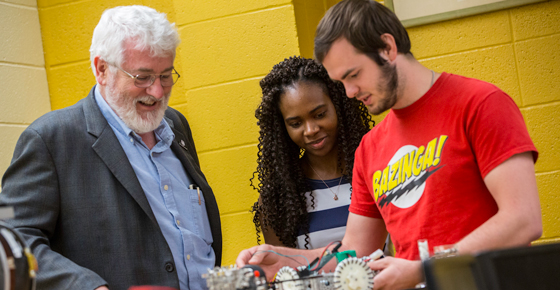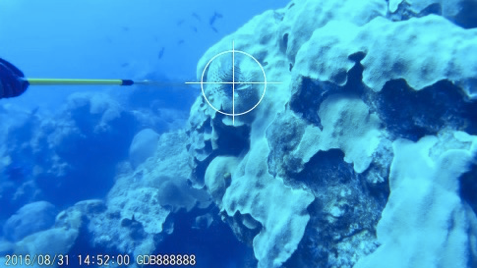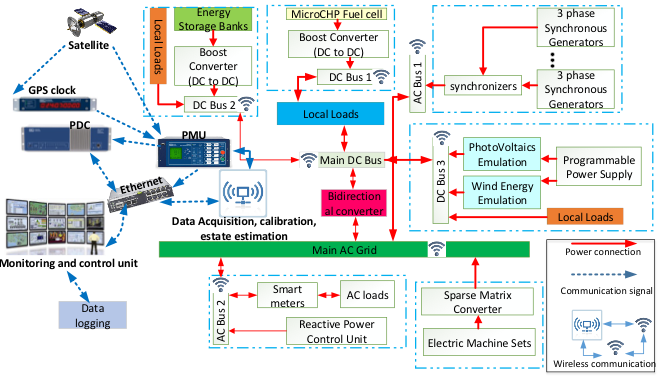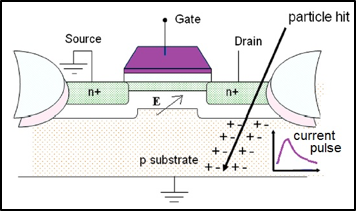Research

Department faculty members and students (doctoral, masters and undergraduate) work in the following labs and centers:
Examples of Research Projects
An Aquatic Robot for Lionfish Remediation—AARISE
 Dr. Myler's project goal is to develop a marine robot capable of locating, identifying and tracking invasive red lionfish (Pterois volitans). The robot accomplishes this using a deep learning machine vision algorithm as shown in this photo where a tracking circle has been applied to a detected lionfish.
Dr. Myler's project goal is to develop a marine robot capable of locating, identifying and tracking invasive red lionfish (Pterois volitans). The robot accomplishes this using a deep learning machine vision algorithm as shown in this photo where a tracking circle has been applied to a detected lionfish.
Developing Signal Analysis Tools Capable of Detecting Changes in Brain Activity

Dr. Gleb Tcheslavski’s project goal is to develop signal analysis tools capable of detecting changes in human brain activity associated with perceiving visual (light, color, specific objects, etc.) or audible (sounds, speech, etc.) information. Such tools may be instrumental for the future assistive technology helping vision- or hearing-impaired people.
Networking Architecture and Protocols for Space Networks and Solar System Internetwork
 This project focuses on a study and development of a disruption-/delay-tolerant networking (DTN) architecture and protocols to provide Internet-type of data delivery services in a challenging communications environment such as in space and solar system.
This project focuses on a study and development of a disruption-/delay-tolerant networking (DTN) architecture and protocols to provide Internet-type of data delivery services in a challenging communications environment such as in space and solar system.
Designing a Resilient Cyber-Physical Energy Infrastructure
 Dr. Barzegaran's project is funded by the Center for Advances in Port Management. We are designing, analyzing and enhancing the resiliency and reliability of a port energy, communication and structural infrastructure, according to the vulnerability of southeast Texas to natural threats. A nonintrusive cyber-physical cogeneration system in under development for port and coastal areas with the focus on resiliency and reliability.
Dr. Barzegaran's project is funded by the Center for Advances in Port Management. We are designing, analyzing and enhancing the resiliency and reliability of a port energy, communication and structural infrastructure, according to the vulnerability of southeast Texas to natural threats. A nonintrusive cyber-physical cogeneration system in under development for port and coastal areas with the focus on resiliency and reliability.
The Impact of Temperature on Chip Radiation Tolerance
 Dr. Sayil's project examines circuit sensitivity to radiation and how it is continuously increasing as transistors are getting smaller and operating at lower voltages. On the other hand, heat generation in microchip circuits has increased rapidly due to same scaling trends. This project aims to study the effect of temperature on various radiation mechanisms such as radiation induced glitches, delay and coupling effects and compensate the thermal effects.
Dr. Sayil's project examines circuit sensitivity to radiation and how it is continuously increasing as transistors are getting smaller and operating at lower voltages. On the other hand, heat generation in microchip circuits has increased rapidly due to same scaling trends. This project aims to study the effect of temperature on various radiation mechanisms such as radiation induced glitches, delay and coupling effects and compensate the thermal effects.